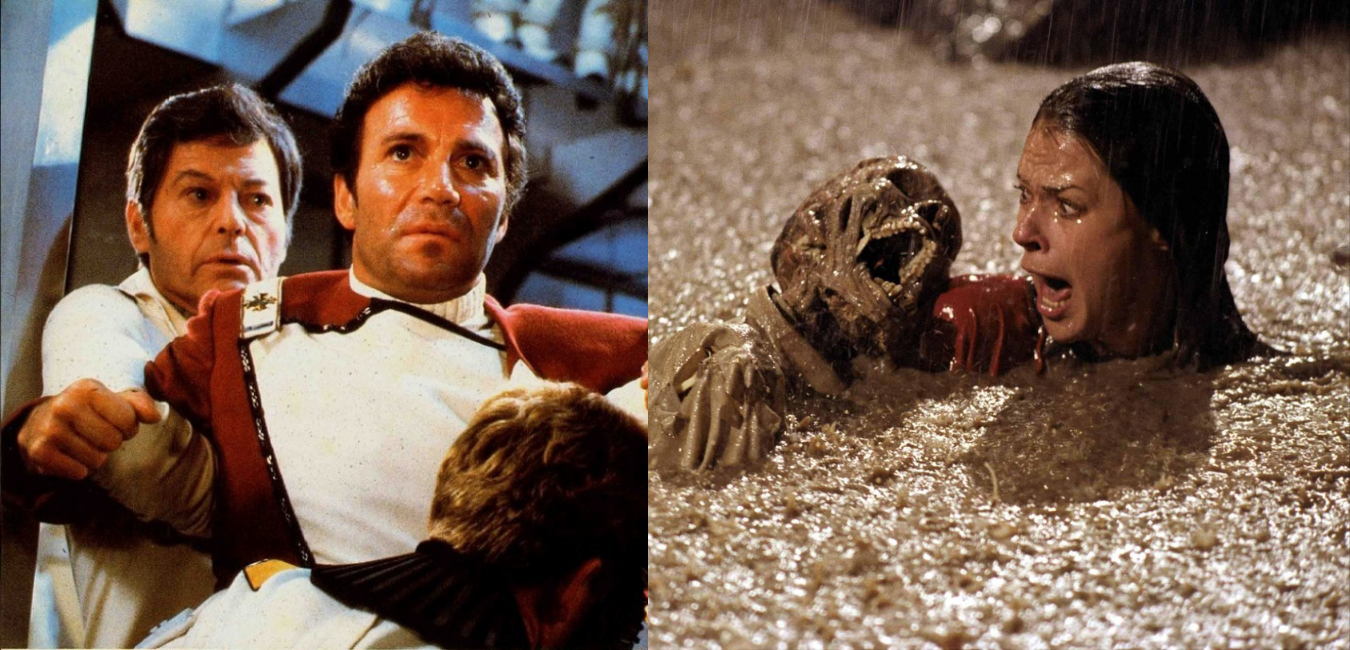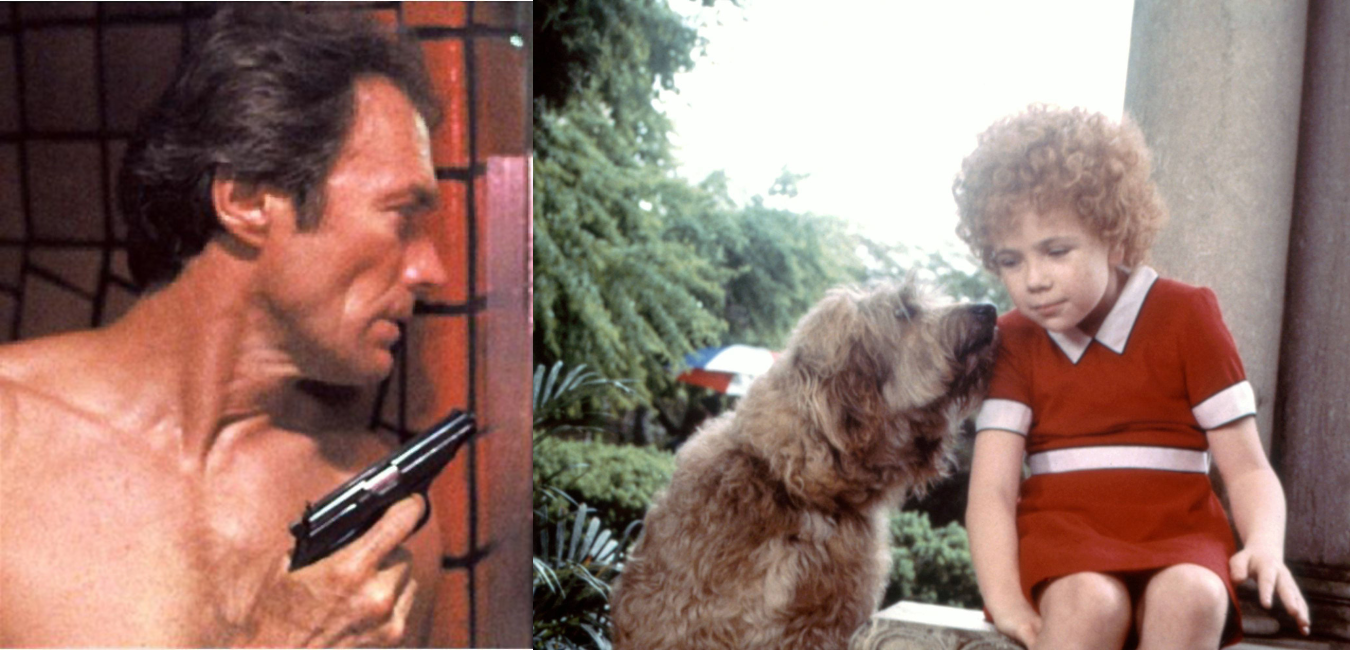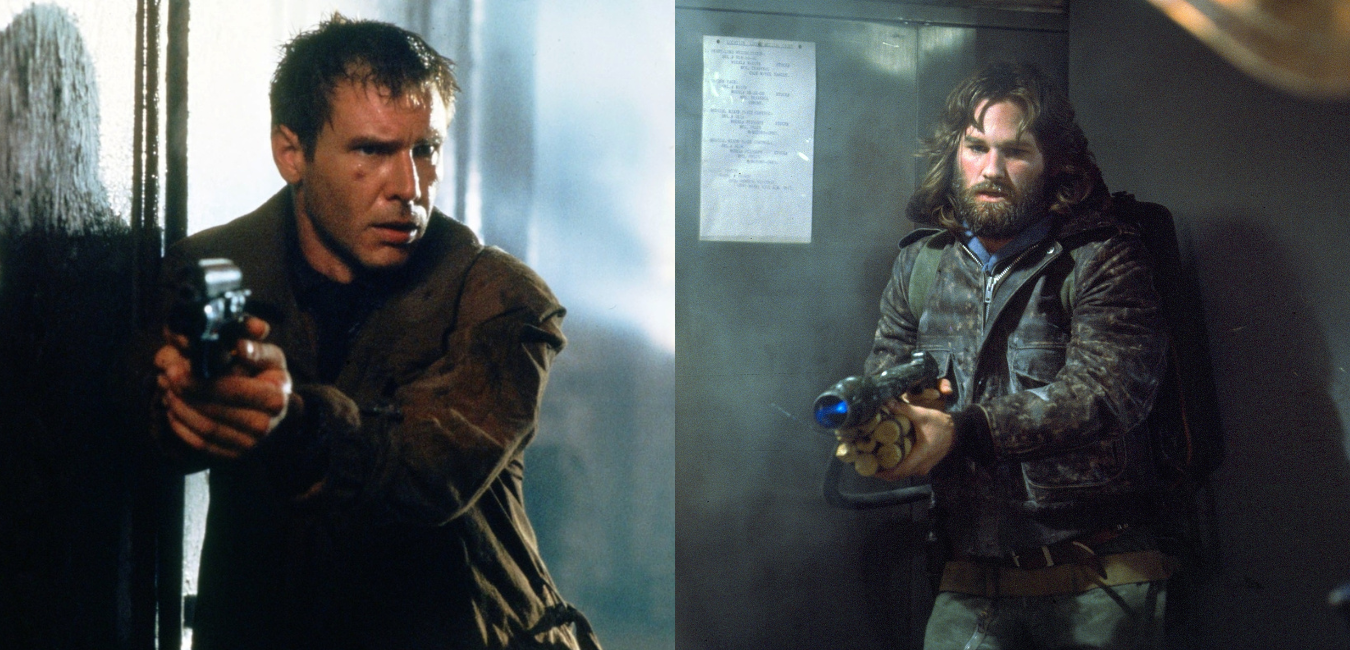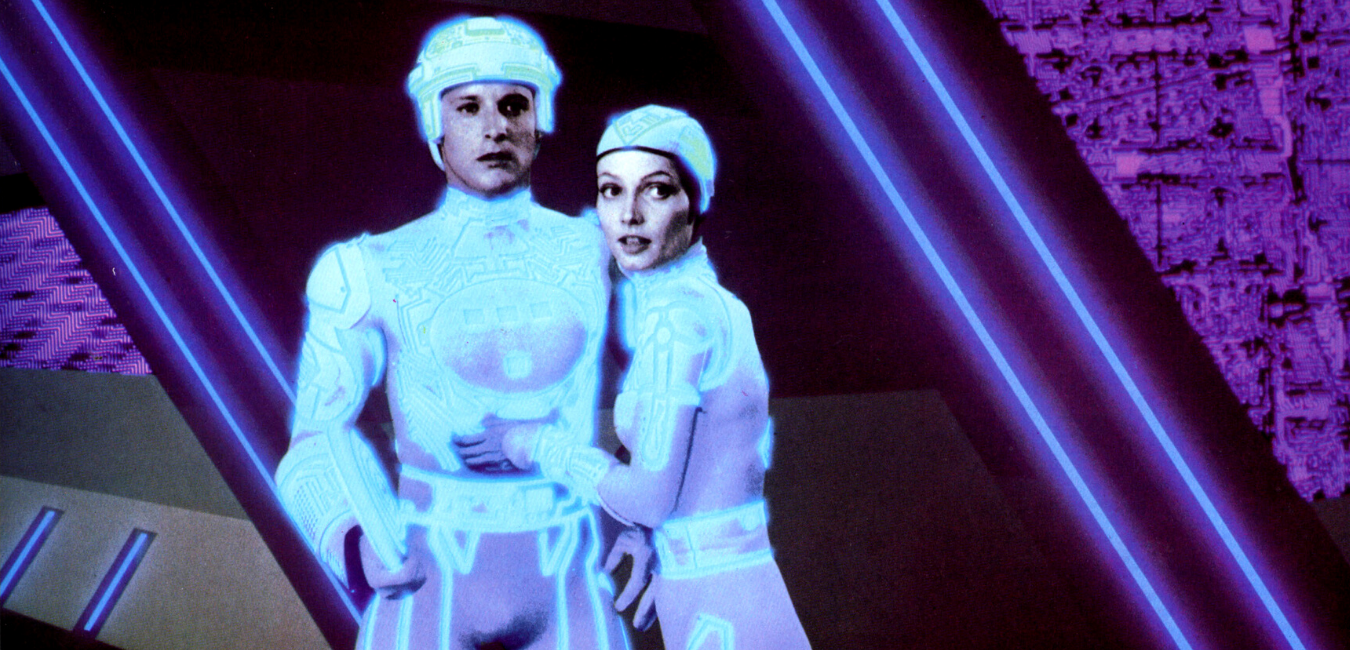Mistakes of the past come back to haunt the characters of 'Star Trek II' and 'Poltergeist'

William Shatner (left) faces the unimaginable in “Star Trek II: The Wrath of Khan” while JoBeth Williams encounters the unexplained in “Poltergeist.” (MovieStillsDB.com)
"Star Trek II: The Wrath of Khan"
Released June 4, 1982
Directed by Nicholas Meyer
Where to Watch
"Poltergeist"
Released June 4, 1982
Directed by Toby Hooper
Where to Watch
It doesn't happen often, but every once in a while, a pair of movies are released simultaneously with a collective theme, creating a killer double-feature. The first weekend in June marked the debut of two movies that enjoyed unexpected connections despite their different genres while eventually becoming iconic generational films.
In 1968, "2001: A Space Odyssey" and "Planet of the Apes" offered unique glimpses into the future. In 1997, the Nicolas Cage action hero era began with "Con Air" and "Face/Off." Today, "Everything Everywhere All at Once" and "Dr. Strange in the Multiverse of Madness" examine our choices and what could have been.
Despite opening on the same day, "Star Trek II: The Wrath of Khan" and "Poltergeist" don't appear to have much in common. One is a science-fiction adventure with a future starship steered by a fleet of scientists, engineers, and explorers. The other is a frightening drama about a suburban family struggling with the supernatural. They both became one of the biggest hits of 1982 and remained embedded in our cultural consciousness, but are often not compared or discussed with one another outside of sharing the same release date. However, watching "Star Trek II" and "Poltergeist" back to back reveals both explore a similar theme.
The Star Trek franchise is now considered one of the pillars of science fiction media with a passionate fan base. The original series, which aired on television from 1966 to 1969, featured Captain James T. Kirk (William Shatner), the alien/human hybrid science officer Spock (Leonard Nimoy), and Dr. Leonard "Bones" McCoy (DeForest Kelley) exploring the cosmos with their starship, the Enterprise. While the show was canceled in its third season, the series became a cult favorite for its fans. Creator Gene Roddenberry continued to examine ways to relaunch the franchise. Following the success of 1977's "Star Wars," parent company Paramount Pictures announced the original cast would return in a feature-length film set for 1979.
However, "Star Trek: The Motion Picture" was heady and expensive, lacking the action and adventure that turned Star Wars into a phenomenon. It underperformed at the box office, leading to an overhaul of its creative vision. When it came to a sequel, Paramount benched Roddenberry and turned to veteran television producer Harve Bennett and film director Nicholas Meyer, neither of whom had watched the series. Bennett binged the series and wrote several scripts, and once Meyer was signed, he took the best parts of each script and combined them into a final screenplay.
"Star Trek II" would focus on a singular villain, Khan (Richardo Montalbán), who debuted in the original series episode, "Space Seed." Khan was exiled at the end of the episode, and when this movie picks up, he is unintentionally rescued by Starfleet. He quickly takes over another starship and crosses an ocean of stars to hunt down Kirk in vengeance. Meanwhile, Kirk is struggling with his growing age and vulnerability. He's stifled by his Earth-bound position as an admiral, and as Khan's plot against him unfolds, Kirk is forced to reevaluate his career as a former lover (Bibi Besch) is pulled into the conflict, along with their adult son (Merritt Butrick).
"Wrath of Khan" is often considered the best Trek film because of an iconic villain performance, masterful action and music, and of course, the memorable death of Spock after he sacrifices himself to save the Enterprise (spoilers: he gets better). But at its heart, the film is about a man who's escaped fate time and again, but in the later years of his life, finds the results of his escapades returning to confront him.
By coming to the franchise fresh without preconceptions about what a Star Trek story is, Meyer crafted a story about a man facing a middle-aged crisis and haunted by his decisions. Tobe Hooper's "Poltergeist" is about both an external and internal haunting in the world of 1982 suburbia. Steven and Diane Freeling (Craig T. Nelson and JoBeth Williams, respectively) live in a comfortable home with their three kids. The youngest, Carol Ann (Heather O'Rourke), begins speaking with a silent presence emanating from the television. Strange things start happening around the house. Soon afterward, Carol Ann is taken by an interdimensional entity, forcing the desperate Freelings to call in supernatural experts to help.
Nelson's Steven character works for the neighborhood developer and later finds out that the land these homes were built on was a former cemetery, and the buried bodies were never moved with the tombstones. The sins of the past haunt this suburb in a thematic way and a literal poltergeist, as the main character desperately fights to keep his people safe from their vengeance.
Aspects of "Poltergeist" haunted more than the characters in the movie. Famed filmmaker Steven Spielberg collaborated with horror director Tobe Hooper (of "The Texas Chain-Saw Massacre" fame) on conceiving what would become "Poltergeist." Spielberg produced the film and was on set frequently making creative decisions, leading to a dispute that he directed the movie instead of Hooper. It's a legend that haunted both men, who publicly denied the rumor. To this day, cast and crew members are asked about the dispute, and inevitably, their answer about who was the actual director restarts the debate all over again.
"Tobe was a terrific filmmaker," horror writer-director Mick Garris, who worked as a publicist on "Poltergeist," said on the Post Mortem podcast in 2017. "I don't think it's that Steven was controlling. I think it was Steven was enthusiastic. And nobody was there to protect Tobe. But all the pre-production was done by Tobe. Tobe was there throughout. Tobe's vision is very much realized there. And Tobe got credit because he deserved credit. Steven Spielberg said that. Yes, Steven was very much involved. It's a Tobe Hooper film."
Fortunately, audiences had no issues and were delighted with both movies upon release. "Khan" rejuvenated the Star Trek franchise for a new generation (including me, as it was my virgin Trek experience), giving way to several additional movie sequels and many new television series up until today.
Or, as New York Times critic Janet Maslin said of "Khan," "Now that's more like it."
Meyer may not have been a Trekkie, but his focus on building the story around a character conflict and not an external force benefitted both "Khan" and a later sequel he directed, "The Undiscovered Country."
"You can't help but be touched by the fact that the characters, the story, the performances, I don't know what, all add up to this potent brew that people seem to find different things in," Meyer told IndieWire in 2017. "Whether it's the Kirk-Spock friendship or Kirk's relations with his son or the oddly sympathetic villain, the abandoned Khan. It's sort of the bits and pieces that mix together and create those sparks of feeling."
"Poltergeist" has a bumpier legacy. While the first movie was a huge success, ACTRESS died shortly after the film's release. Subsequent films in the series were not as popular, and O'Rourke unexpectedly passed away at 12 after battling intestinal stenosis after filming "Poltergeist III." However, many people still consider the original a classic of the genre and an entryway into horror films. "Poltergeist" spawned a remake in 2015.
"'Poltergeist' is an effective thriller, not so much because of the special effects, as because Hooper and Spielberg have tried to see the movie's strange events through the eyes of the family members, instead of just standing back and letting the special effects overwhelm the cast along with the audience," wrote Roger Ebert for The Chicago Sun-Times. "(They) hold our interest by observing the everyday rituals of this family so closely that, since the family seems real, the weird events take on a certain credibility by association."
When it came to the box office, "Star Trek II" won the first round, topping the weekend charts with $14.3 million gross, with "Poltergeist" placing third with $6.9 million. Both films were a week away from competing against one of the all-time biggest box office performers, but they had staying power. The two movies would remain in the top 10 box office weekend charts for over a month, but "Poltergeist" managed to hang onto an audience longer than "Star Trek II," remaining in theaters until September, followed by a short encore run around Halloween. When all the tickets were counted for their original domestic runs, it was a photo finish: "Star Trek II" earned $78.9 million, and "Poltergeist" took in $76.6 million.
Two movies in different genres, connected by the same release date and a common but subtle theme. "Star Trek II: The Wrath of Khan" and "Poltergeist" are two of the best of 1982 and favorites of the decade amongst movie fans. Watch them both together one night to enjoy an unlikely double-feature.
At the Box Office: Thanks to the strong debuts of "Star Trek II" and "Poltergeist," this weekend in 1982 posted the biggest overall performance of the year thus far, netting a total of $49.5 million. It's an impressive increase over the previous Memorial Day holiday weekend of $47.9 million, and it's only the start of a hot summer at theaters due to the impending arrival of a kind-hearted alien.
Behind "Star Trek II" was "Rocky III," which netted $10 million over the weekend to add to its total of $30.8 million, a fantastic two-week debut for the latest fight of the Italian Stallion.
With "Poltergeist" in third, the weekend's third new film, "Hanky Panky," was fourth with $3.5 million. A Sidney Poitier-helmed comedy starring Gene Wilder and Gilda Radner, "Hanky Panky" opened to mixed reviews and had a short run in theaters.
Finally, "Conan the Barbarian" finished its fourth week in fifth place with $2.7 million.
Next Week: "E.T. The Extra-Terrestrial"
Mark is a longtime communications media and marketing professional, and pop culture obsessive.




